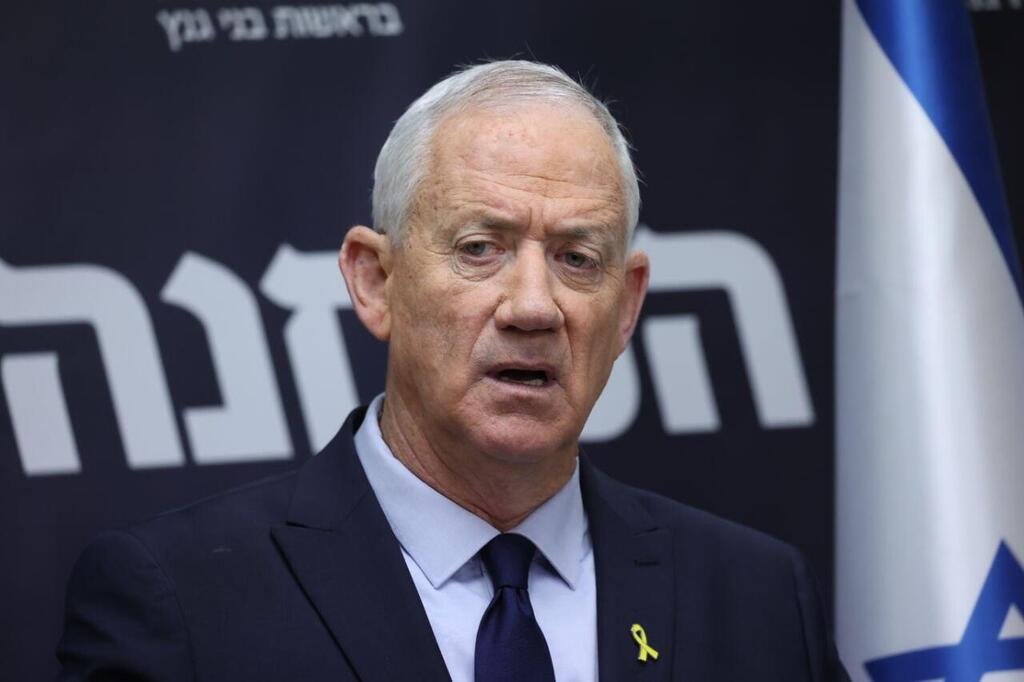Finance Minister Bezalel Smotrich congratulated Donald Trump of upon his re-election during the Religious Zionism Party faction meeting on Monday and called for Israeli sovereignty to be applied throughout the entire West Bank.
"After years of unfortunate interfering in Israeli politics by the current U.S. administration and choosing not to cooperate with me as the finance minister of the State of Israel, I congratulate the elected administration and look forward to working together for the benefit of strengthening the economic and commercial relations between our countries," Smotrich said.
"Trump's victory also brings with it an important opportunity for the State of Israel. We were a step away from applying sovereignty to the settlements in Judea and Samaria, and now is the time to do it. Today there is a broad consensus in the coalition and in the opposition that the establishment of a Palestinian state would endanger the existence of the State of Israel. 2025 will be the year of sovereignty in Judea and Samaria. I instructed the Directorate of Settlements in the Defense Ministry and the Civil Administration to begin professional and comprehensive work to prepare for applying our sovereignty," he said.
National Unity Party chairman Benny Gantz commented on Smotrich's words. "The schism between the efforts of our military forces on seven fronts and the coalition's attempt to tear us apart from within screams to the heavens. I ask the members of the coalition, how can you live with yourselves? The families of the reservists are collapsing and you take care of those unwilling to draft to the IDF?"
"The people want to unite and you are returning to the judicial overhaul. Thousands were evacuated from their homes and you are building more government offices and inflating political budgets? Have you forgotten October 6? Have you forgotten in whose name we are here? Have you forgotten that Judaism pursues justice, and not the gatekeepers?"
"The army needs to be more careful in the way it uses the reservists," Gantz said earlier, commenting on Ynet's report on the drop in the number of reservists willing to serve. "It is possible to critically observe with more attention to who is called up, how many are called up, where they are sent, and what is their mission. We must ensure they are not called up so easily for reserves. I trust the commanders to do that," Gantz added.
In the first months of the war, after the October 7 massacre, 100% of soldiers serving in the reserves showed up to join the fight. Although all positions were filled, many insisted on being deployed and some even returned from travel abroad to enlist.
The ranks in all reserve units were full, and additional reserve personnel requested and pressed to join. However, in recent weeks, the figures have dropped to an average of 75%-85%.
According to the IDF's estimates, the main reason for the decline in the willingness to serve stems from exhaustion after the reserve forces were in battle for months at a time and were repeatedly called up again and again in the year since the war broke out.
A senior security official confirmed that the reserve combat soldiers would be required to serve at least 100 days next year and be called up for 45 to 60 days every four months on average.
In addition, security officials warn that the government has yet to allocate funds for financial support for soldiers in the reserves, many of whom lost businesses and income. Overall, the funds allocated for reservists last year reached about 9 billion shekels. Currently, nothing assures the reservists they will be appropriately compensated for their service compared to the tens of thousands of shekels each reservist received last year.
Get the Ynetnews app on your smartphone:





